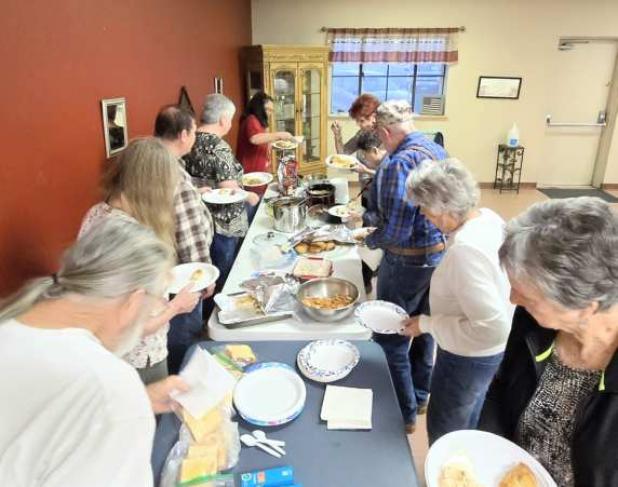
Senior Cub Center lobbies for funding
Nonprofit organizations that provide Meals on Wheels services across Texas are sounding the alarm about potential funding cuts due to a federal grant freeze and a proposed state policy that would allow for-profit companies to compete for meal service contracts.
Angela Lockard, director of the Olney Senior Cub Center, is among those advocating against the plan, warning that it could divert critical resources away from existing nonprofit programs that serve vulnerable seniors in rural communities.
Mrs. Lockard will travel to Austin from February 16-19 to lobby lawmakers against opening Meals on Wheels contracts to for-profit businesses. She argues that nonprofits, which have long provided these services on shoestring budgets, could see their funding slashed if profit-driven companies enter the market.
“Meals on Wheels is essential because we serve homebound people who are not in the public eye,” Mrs. Lockard said. “We are giving them a voice.”
The recent federal freeze on grant funding has added another layer of financial uncertainty for Texas’ Meals on Wheels programs. Nonprofits like the Olney Senior Cub Center rely on a combination of federal, state, and local funding to provide meals and daily welfare checks to seniors who might otherwise have no support system.
One positive development in recent years was an increase in the state’s meal reimbursement rate, which rose to $6.46 per meal—up from the $4.93 rate that had remained unchanged from 1997 to 2019.
However, Mrs. Lockard fears
that if for-profit companies gain access to these contracts, they may undercut nonprofit providers, reducing funds available for rural programs that already operate on thin margins.
The lobbying group Lockard is joining is also urging lawmakers to increase funding for the Texans Feeding Texas program. This initiative, which supports meal services for low-income seniors and homebound individuals, operates on a $10 million annual budget serving residents across the state. Advocates are calling on the Legislature to allocate $25 million to the program, arguing that a portion of the state’s $20 billion budget surplus should be used to ensure that Texas seniors do not go hungry.
Beyond providing daily nutrition, Meals on Wheels delivery drivers serve as a crucial point of contact for isolated seniors. In Olney, drivers check in on recipients to ensure their physical and mental well-being, often acting as first responders to health emergencies or other crises.
“The reason Meals on Wheels is so important is that we help homebound people live independently,” Mrs. Lockard said. She noted that the cost of providing Meals on Wheels services is approximately $1,200 per year per senior—significantly less than the estimated $65,000 annual cost of placing a senior in a nursing home.
Mrs. Lockard and her fellow advocates stress that cutting funding for Meals on Wheels would disproportionately harm rural communities, where seniors have fewer resources and support networks.
“This is going to hurt the rural Meals on Wheels programs,” she said.
With the legislative session in full swing, Mrs. Lockard and other nonprofit leaders hope their efforts will convince lawmakers to prioritize senior nutrition programs and ensure that all Texans, regardless of where they live, have access to the meals and daily check-ins that help them remain independent and healthy.
